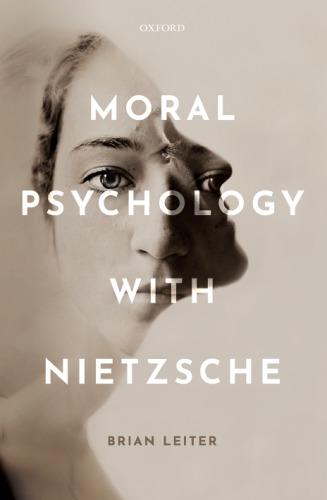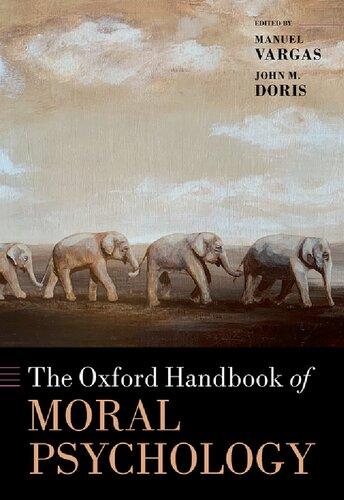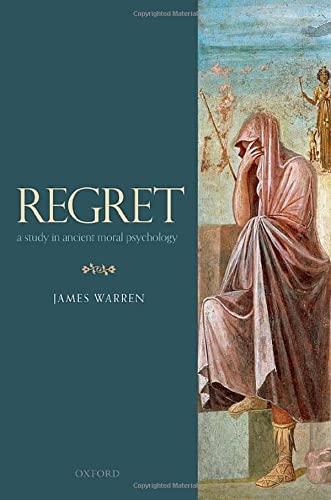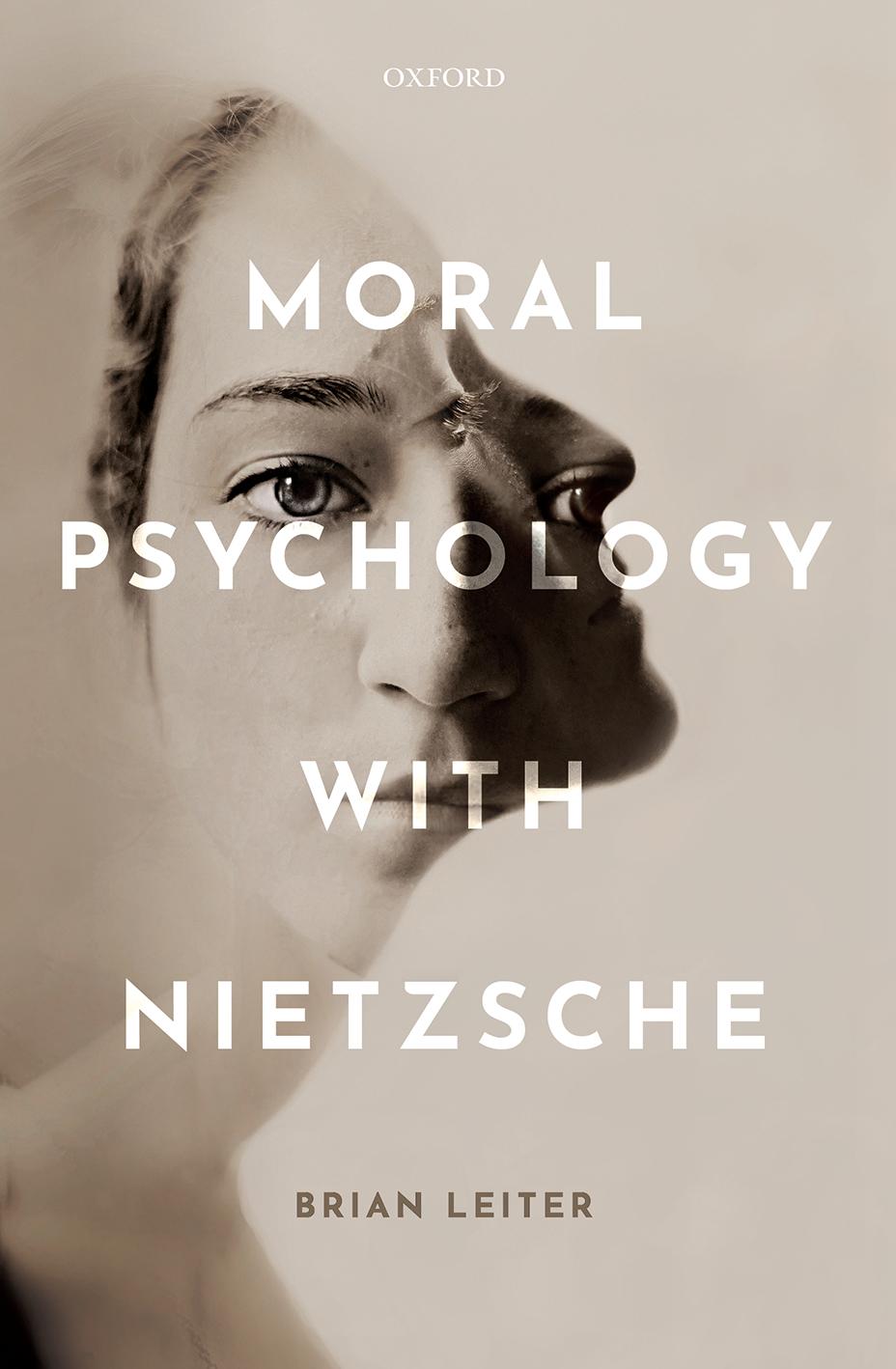Preface and Acknowledgments
One happy consequence of writing on Nietzsche is that one does not need to persuade readers that Nietzsche is important or interesting: he is a brilliant writer, a magnet for interest across all fields of humanistic and social scientific inquiry. An unhappy problem for the Nietzsche scholar is that Nietzsche’s writing style is often too seductive, that too many readers fail to take seriously his views about style: namely, that it is also meant to exclude those not really prepared for his insights or those not patient enough to uncover his meaning. Probably because of the seductive writing style, Nietzsche, compared to the other major figures of nineteenth-century philosophy, continues to attract more juvenile commentary than most, though the scholarly situation is much better now than a generation ago. As I noted in the Second Edition of my Nietzsche on Morality (Leiter 2002; 2015: x), “the secondary literature has matured considerably, to the point that it now compares favorably, I believe, with the secondary literatures on figures like Kant and Marx, something that was not true when I finished the first edition in late 2001.”
This volume picks up on many themes broached, but treated more briefly, in my 2002 book. Chapter 3 of the earlier book dealt with Nietzsche’s critique of “moral agency,” but many of the papers I have written since then have tried to probe Nietzsche’s moral psychology more deeply, and ventured into territory neglected almost entirely in the earlier book, such as Nietzsche’s treatment of the affects, of the unconscious, and of freedom. Much of that work from the intervening years has migrated, often transmogrified, into the present volume. I have been particularly interested since the earlier book in the extent to which the best empirical evidence, in fact, vindicates Nietzsche’s speculative psychology, and that will be a recurring theme throughout this volume.
I owe a general (and sometimes very specific) intellectual debt to the community of philosophically smart and serious Nietzsche scholars which has formed over the last generation, and that now gathers annually at the meetings of the International Society for Nietzsche Studies I established with colleagues in 2015, including Lanier Anderson, Jessica Berry, Maudemarie Clark, David Dudrick, Michael Forster, Ken Gemes, Andrew Huddleston, Christopher Janaway, Peter Kail, Paul Katsafanas, Simon May, Al Prescott-Couch, Bernard Reginster, Mattia Riccardi, John Richardson, Simon Robertson, and Gudrun von Tevenar. I owe special thanks to Gemes for years of friendship and penetrating philosophical and scholarly insight about Nietzsche (and especially for his comments on Chapter 4). Graduate students in philosophy at both the University of Texas at Austin and the University of Chicago have been a continual source of insight, stimulation, and challenge for me; many are now established scholars in their own right, as I’m sure the others will be in the years to come. So warm
thanks for good questions and insights to Nir Ben-Moshe, Jessica Berry (again!), Reid Blackman, Lawrence “Dusty” Dallman, Jaime Edwards, Roger Eichorn, Guy Elgat, Matt Evans, Joshua Fox, Tes Hash, Claire Kirwin, Joel Mann, Christopher Raymond, Neil Sinhababu, Dan Telech, and Ariela Tubert (with apologies to those I may have forgotten). Dan Telech also provided typically excellent research assistance as I prepared the volume for publication and offered invaluable substantive comments on the penultimate draft. Other PhD students at the University of Chicago have taught me a lot even when they have done no work on Nietzsche. I should mention especially Nethanel Lipshitz, whose excellent dissertation on the basis of equality problem has taught me a great deal.
I also discussed many of the issues treated in this volume with a wide array of philosophers, many not primarily interested in Nietzsche. With apologies, again, to those I have forgotten, I am grateful to Mark Alfano, Justin Clarke-Doane, Justin Coates, Nicolas Delon, John Doris, David Enoch, Max Etchemendy, Richard Holton, Tom Hurka, Pierre Keller, Joshua Knobe, Martin Kusch, Don Loeb, Samantha Matherne, Ram Neta, Alastair Norcross, Martha Nussbaum, Jesse Prinz, Peter Railton, Eric Schwitzgebel, Ralph Wedgwood, and Howard Wettstein. I must thank Delon, in particular, for written comments on large parts of the penultimate manuscript, and especially for his objections to arguments in Chapter 5, to which I have probably not adequately responded.
In the late fall of 2017, when I asked the philosophers Don Rutherford and Manuel Vargas whether they and some colleagues and students at the University of California, San Diego might be willing to read some of the manuscript and “crucify me” (as I put it), they generously agreed. Penultimate drafts of Chapters 1, 2, 3, and 5 benefitted immeasurably from the careful attention and criticism of Don and Manuel, as well as from their colleagues David Brink, Michael Hardimon, Dana Nelkin, Samuel Rickless, and Eric Watkins, and UCSD PhD students Dallas Amico, Noel Martin, and Leo Moauro. In addition, I am grateful to Pierre Keller, one of the most knowledgeable and insightful scholars of Kant and the post-Kantian traditions in European philosophy in North America, who came down from the University of California, Riverside to participate in the workshops, and who pressed on me the places where Nietzsche may have remained more of a NeoKantian than I am inclined to suppose. I suspect I will have not responded to his doubts adequately, though I have tried to take them seriously. I must also thank Rutherford for his later feedback on Chapter 6, though he should not, of course, be presumed to agree with what I say there. I am also grateful to Riverside PhD student Avery Snelson, who took off an afternoon from working on his dissertation on Nietzsche, to press me on a number of textual and interpretive matters while I was in San Diego.
Peter Momtchiloff, the philosophy editor at OUP to whom so many are indebted, was, as always, patient, but also nudged and encouraged me at the right times. Lorrie Ragland, my secretary for the last decade, has provided invaluable support in a multitude of ways that has facilitated completion of this project.
Some arguments and ideas in this book appeared previously, though almost everything has been revised, often so extensively that the original is probably unrecognizable. Portions of the introduction draw on material that originally appeared as “Nietzsche’s Naturalism Reconsidered,” in K. Gemes and J. Richardson (eds.), The Oxford Handbook of Nietzsche (Oxford: Oxford University Press, 2013). Chapters 1 and 2 include ideas and arguments from articles that originally appeared as “Nietzsche’s Metaethics: Against the Privilege Readings,” in European Journal of Philosophy 8 (2000): 277–97, and as “Moral Skepticism and Moral Disagreement in Nietzsche,” in R. Shafer-Landau (ed.), Oxford Studies in Metaethics, Volume 9 (Oxford: Oxford University Press, 2014); both are revised quite a bit, including with responses to critics of my views; reproduced by permission of Oxford University Press. Chapter 3 is a revised version of a paper of the same name that appeared in Social Philosophy & Policy 30: 237–58, ©2013, reprinted with permission. Chapter 4 incorporates some material from “Normativity for Naturalists,” Philosophical Issues: A Supplement to Nous 25 (2015): 64–79, and also incorporates some ideas from a forthcoming paper on perspectivism (that paper in full is slated to appear in a volume on relativism in German philosophy, edited by Martin Kusch and colleagues from the University of Vienna).
Chapter 5 draws on material that originally appeared in “Nietzsche’s Theory of the Will,” Philosopher’s Imprint 7 (2007): 1–15, which also was reprinted in K. Gemes and S. May (eds.), Nietzsche on Freedom and Autonomy (Oxford: Oxford University Press, 2009). Chapter 5, and also Chapter 6, draw on material that first appeared in “Who is the Sovereign Individual? Nietzsche on Freedom,” in S. May (ed.), The Cambridge Companion to Nietzsche’s On the Genealogy of Morality (Cambridge: Cambridge University Press, © 2011, reprinted with permission), as well as some material that first appeared as “The Paradox of Fatalism and Self-Creation in Nietzsche” in C. Janaway (ed.), Willing and Nothingness: Schopenhauer as Nietzsche’s Educator (Oxford: Oxford University Press, 1998). Chapter 7 was co-authored with Joshua Knobe and appeared in a collection I co-edited with Neil Sinhababu on Nietzsche and Morality (Oxford: Oxford University Press, 2007); all reproduced by permission of Oxford University Press. I am very grateful to Joshua for allowing me to include this essay here, since it was very much a joint effort. I have revised this chapter primarily to insure consistency with the rest of the volume.
I am grateful to the publishers for permission to reuse this material here.
Sheila, my best friend for a very long time now, has continued to be incredibly generous and supportive of my work (including being exceptionally tolerant of my habit of doing a lot of writing in the evenings). I am grateful to her for all that, and much more—most importantly, for Sam, William, and Celia, who have not only made our lives so much better but deepened my understanding of moral psychology. My last book was dedicated to Sam, our first child who is now poised to graduate college and pursue his own professional, intellectual, and political aspirations. This book is dedicated to our second child, William, a science enthusiast with philosophical curiosity,
x Preface and Acknowledgments
and a gifted learner and speaker of languages, a facility I not only admire but have had occasion to consult at times when working on this book. (Celia, I promise you are up next for a dedication!) From all three, I learned the truth of Schopenhauer’s doctrine, one Nietzsche (despite occasional noises to the contrary) ends up sharing, namely, that “a man does not alter, and his moral character remains absolutely the same all through his life.” I have learned much from each of theirs, and look forward to seeing them each unfold in the years ahead. It has been the most extraordinary experience of my life to be part of that.
B.L.
Chicago, USA
May 2018
1. Nietzsche’s Anti-Realism about Value: The Explanatory Arguments
2. Nietzsche’s Metaethics: Against the Privilege Readings
3. Moralities are a Sign-Language of the Affects
4. Anti-Realism, Value, Perspectivism
Part II. Freedom, Agency, and the Will
5. Nietzsche’s Theory of Agency: The Will and Freedom of the Will
6. A Positive View of Freedom?
7. The Case for Nietzschean Moral Psychology (Joshua Knobe and Brian Leiter)
Nietzsche’s Naturalistic Moral Psychology
1. Moral Psychology, Philosophy, Naturalism
“Moral psychology” has become something of a term of art in Anglophone philosophy over the last several decades, though it warrants some elaboration here for the benefit of those not current with that often narrow literature. The label picks out a set of interrelated issues of central philosophical concern for millennia, going back at least to Plato, and figuring prominently in most of the major philosophers of modernity, including Nietzsche. The “psychology of morality” would, indeed, be a good first approximation of the subject matter, that is, the psychological explanation of what is involved in both making moral judgments and acting morally (or acting in a way the agent takes to be apt for moral assessment). But what is the distinctive contribution of philosophy as distinct from empirical psychology to moral psychology?
Answering that question when thinking about Nietzsche requires us to be careful with our terminology, since for Nietzsche, “genuine philosophers” (BGE 211) are those who create or “legislate” values, in contrast to those “philosophical laborers”—Nietzsche names Kant and Hegel as exemplary cases—who simply “press into formulas . . . some big set of valuations—that is, former positings of values, creations of value which have become dominant and are for a time called ‘truths’ ” (BGE 211). There may only be two “genuine philosophers” by this criterion, namely, Plato and (perhaps) Nietzsche himself, but Nietzsche’s “honorific” sense of what it is to be a philosopher is largely irrelevant for purposes of my aims in this volume. I mean to elaborate on the “philosophical” contribution to moral psychology in a more mundane sense, namely, the contribution that clarity about the concepts in play and their inferential relations can contribute to thinking about the psychology of morality. In particular, a psychological account of moral judgment and purported moral agency has to be clear about, among other things, the nature of morality and of moral judgments, what would be involved in agency and distinctively moral agency (which is always in the modern tradition understood to be free agency), and the workings of a mind in which such agency is possible. “Moral psychology,” in short, encompasses issues in metaethics, philosophy of mind, and philosophy of action, including questions concerning the objectivity of morality, the relationship between moral judgment and emotion, the nature of the
emotions, free will and moral responsibility, and the structure of the mind as that is relevant to the possibility of moral action and judgment.
Nietzsche is, along with Hume, one of the two great naturalists of modern moral philosophy,1 a theme I have defended, with some success, in my earlier work (Leiter 2002), so much so that one recent scholar claims that, “Most commentators on Nietzsche would agree that he is in a broad sense a naturalist in his mature philosophy” (Janaway 2007: 34).2 I hope that assessment of current scholarly opinion is correct, but it marks a dramatic change from an earlier consensus from the 1960s through the 1980s when resolutely anti-naturalistic readings (sometimes obvious misreadings) by Martin Heidegger, Jacques Derrida, Sarah Kofman, Richard Rorty, and Alexander Nehamas were particularly influential. Nietzsche’s naturalism, as I have argued, is centrally methodological (hereafter M-Naturalism), calling for continuity with the methods of successful sciences (in the nineteenth century, this meant especially physiology and biology).3 This continuity entails some substantive commitments, such as the denial of supernatural entities which play no explanatory role in the successful sciences, as well as skepticism about freedom of the will, which Nietzsche, like many nineteenth-century writers, took to be undermined by the sciences. Crucially, though, M-Naturalism requires the philosopher seeking to understand human beliefs, attitudes, and behavior to develop a speculative psychology of human beings and human nature. This aligns Nietszche quite closely with Hume, as many scholars have now noted (cf. Kail 2009), though Hume had only Newtonian science as a paradigm, while Nietzsche had the benefit of extensive familiarity with developments in nineteenth-century science on which to draw, both substantively and speculatively (Emden 2014; cf. Leiter 2017).
Recall Barry Stroud’s useful formulation of Hume’s speculative M-Naturalism:
1 Spinoza is another, and one relevant in the case of Nietzsche because of his way of reconciling fatalism and freedom, a topic to which we return in Chapter 6. But Spinoza’s panpsychism was utterly foreign to Nietzsche, although central to Spinoza’s conception of the natural.
2 Janaway, in an otherwise illuminating study, makes several errors in his discussion of my version of Nietzsche’s naturalism: in the end, his view of Nietzsche’s naturalism is just a version of mine. For an extended discussion, see Leiter (2015a: 244–64). I address briefly a couple of these points, below.
3 After 1830 in Germany, “Physiology became the basis for modern scientific medicine, and this confirmed the tendency, identifiable throughout the whole of the nineteenth century, towards integration of human and natural sciences” (Schnädelbach 1983: 76). In his 1843 Philosophy of the Future, Feuerbach could write that, “The new philosophy makes man, along with nature as the basis of man, into the one and only universal and highest object of philosophy: anthropology, including physiology, becomes the universal science” (Sec. 54). The 1850s saw an explosion of books drawing on the new sciences, and articulated the German Materialists’ naturalistic view. As one scholar has written: “[T]he German materialists . . . took the German intellectual world by storm during the 1850s” (Vitzthum 1995: 98). A critic of materialism writing in 1856 complained that, “A new world view is settling into the minds of men. It goes about like a virus. Every young mind of the generation now living is affected by it” (quoted in Gregory 1977: 10). We know from Thomas Brobjer’s research (Brobjer 2008: 44, 123, 133–4) that Nietzsche, as a young man, had read Feuerbach and was also a regular reader of the journal Anregung für Kunst, Leben und Wissenschaft which, in the early 1860s, published many articles about materialism, including by Büchner. The crucial event for Nietzsche was his discovery in 1866 of Friedrich Lange’s recently published History of Materialism, a book which opened up for him the whole history of philosophical materialism up to and including German Materialism, as well as introducing him to the profound developments in modern natural science, especially biology, chemistry, and physiology (cf. Brobjer 2008: 32–6; Emden 2014: 21–32).
[Hume] wants to do for the human realm what he thinks natural philosophy, especially in the person of Newton, had done for the rest of nature.
Newtonian theory provided a completely general explanation of why things in the world happen as they do. It explains various and complicated physical happenings in terms of relatively few extremely general, perhaps universal, principles. Similarly, Hume wants a completely general theory of human nature to explain why human beings act, think, perceive and feel in all the ways they do
[T]he key to understanding Hume’s philosophy is to see him as putting forward a general theory of human nature in just the way that, say, Freud or Marx did. They all seek a general kind of explanation of the various ways in which men think, act, feel and live The aim of all three is completely general—they try to provide a basis for explaining everything in human affairs. And the theories they advance are all, roughly, deterministic. (Stroud 1977: 3, 4)
Hume modeled his theory of human nature on Newtonian science by trying to identify a few basic, general principles that would provide a broadly deterministic explanation of human phenomena, much as Newtonian mechanics did for physical phenomena. Yet the Humean theory is still speculative, because its claims about human nature are not confirmed in anything resembling a scientific manner, nor do they even win support from any contemporaneous science of Hume’s day.
Nietzsche’s speculative M-Naturalism obviously differs from Hume’s in some respects: Nietzsche, for example, appears to be a skeptic about nomic determinism based on his professed (if not entirely cogent) skepticism about laws of nature (cf. BGE 21–22). Yet Nietzsche, like Hume, has a sustained interest in explaining why “human beings act, think, perceive and feel” as they do. The crux of this speculative naturalism derives from ideas popular among German Materialists in the 1850s and after: that human beings are fundamentally bodily organisms, creatures whose physiology explains most or all of their conscious life and behavior. Nietzsche adds to this Materialist doctrine the proto-Freudian idea that the unconscious psychic life of the person is also of paramount importance in the causal determination of conscious life and behavior.4 Thus, Nietzsche accepts what I have called (Leiter 1998) a “Doctrine of Types,” according to which,
Each person has a more-or-less fixed psycho-physical constitution, which defines him as a particular type of person.5
Call the relevant psycho-physical facts here “type-facts.” Type-facts, for Nietzsche, are either physiological facts about the person, or facts about the person’s unconscious drives or affects. Nietzsche’s claim, then, is that each person has certain physiological
4 Nietzsche’s “official” view seems to be that physiology is primary, but he mostly concentrates on psychological claims, most obviously because he is no physiologist! There were, of course, other anticipations of the Freudian idea, ones that Nietzsche likely encountered, e.g., Fechner (1848). (Thanks to Dan Telech for calling the Fechner article to my attention.)
5 Are individuals born with these traits or do they acquire them? Nietzsche’s texts are unclear on this point. But it is clear that particular traits and wax and wane in importance in an individual’s life depending on circumstances. (Thanks to Mark Alfano for pressing me on this issue.) For more discussion, see Chapter 7.
and psychic traits that constitute the “type” of person he or she is. While this is not, of course, Nietzsche’s precise terminology, the ideas are omnipresent in his writings.
A typical Nietzschean form of argument, for example, runs as follows: a person’s theoretical beliefs are best explained in terms of his moral beliefs;6 and his moral beliefs are best explained in terms of natural facts about the type of person he is (i.e., in terms of type-facts). So Nietzsche says, “every great philosophy so far has been . . . the personal confession of its author and a kind of involuntary and unconscious memoir”; thus, to really grasp this philosophy, one must ask “at what morality does all this (does he) aim” (BGE 6)? But the “morality” that a philosopher embraces simply bears “decisive witness to who he is”—i.e., who he essentially is—that is, to the “innermost drives of his nature” (BGE 6). Indeed, this explanation of a person’s moral beliefs in terms of psycho-physical facts about the person is a recurring theme in Nietzsche. “[M]oralities are . . . merely a sign language of the affects” (BGE 187), he says. “Answers to the question about the value of existence may always be considered first of all as the symptoms of certain bodies” (GS P:2). “Moral judgments,” he says, are “symptoms and sign languages which betray the process of physiological prosperity or failure” (WP 258). “[O]ur moral judgments and evaluations are only images and fantasies based on a physiological process unknown to us” (D 119), so that “it is always necessary to draw forth the physiological phenomenon behind the moral predispositions and prejudices” (D 542). A “morality of sympathy,” he claims, is “just another expression of . . . physiological overexcitability” (TI IX:37). Ressentiment—and the morality that grows out of it—he attributes to an “actual physiological cause [Ursache ]” (GM I:15). Nietzsche sums up the idea well in the preface to the Genealogy: “our thoughts, values, every ‘yes,’ ‘no,’ ‘if’ and ‘but’ grow from us with the same inevitability as fruits borne on the tree—all related and each with an affinity to each, and evidence of one will, one health, one earth, one sun” (GM P:2).
Like Hume, then, Nietzsche proffers a speculative psychology (based on his Doctrine of Types), though as I argue in Chapter 7 (co-authored with Joshua Knobe), Nietzsche’s speculations seem to fare rather well in light of subsequent research in scientific psychology. And this speculative psychology (as well as the occasional physiological explanations he offers in passing) appear to give us causal explanations for various human phenomena, which, even if not law-governed, seem to have a deterministic character, i.e., they presuppose that the phenomena in question have causal determinants (cf. Leiter 2002: 5). Readers should remember how omnipresent causal claims are in Nietzsche’s philosophical writing. When he says in Daybreak, for example, that “[O]ur moral judgments and evaluations are only images and fantasies based on a physiological process unknown to us” (D 119), so that “it is always necessary to draw forth . . . the physiological phenomenon behind the moral predispositions and prejudices” (D 542), he is making a causal claim, i.e., the claim that certain physiological
6 More precisely, as we will see in Chapters 3 and 5, the explanation operates in terms of the underlying drives that produce particular moral beliefs.
processes cause moral judgments through some presumably complicated process that yields them as “images” and “fantasies” brought about by these causes. When he says in the Genealogy that ressentiment, and the morality that grows out of it, has an “actual physiological cause [Ursache]” (GM I:15) his meaning is, of course, unmistakable. When he devotes an entire chapter of Twilight of the Idols to what he calls “the four great errors,” errors that almost entirely concern causation—“confusing cause and effect,” the “error of false causation,” the “error of imaginary causes” he calls them—it is clear that he wants to distinguish genuine causal relations from the mistaken ones that infect religious and moral thinking. When he returns to the same theme in The AntiChrist, he again denounces Christianity for trafficking in “imaginary causes” and for propounding “an imaginary natural science,” one that depends on anthropocentric concepts and lacks, as Nietzsche puts it, “any concept of natural cause” (A 15; cf. A 25)— science consisting, on his account, of “the healthy concepts of cause and effect” (A 49). Psychological and physical causation are essential for Nietzsche’s entire moral psychology and revaluation of values.7
2. Misunderstanding Nietzsche’s Naturalism
Some misunderstandings of Nietzsche’s naturalism, which frames his moral psychology, have arisen among scholars, even among those friendly to the idea that Nietzsche is some kind of philosophical naturalist. Christopher Janaway, for example, complains that,
[N]o scientific support or justification is given—or readily imaginable—for the central explanatory hypotheses that Nietzsche gives for the origins of our moral beliefs and attitudes. For a prominent test case, take Nietzsche’s hypothesis in the Genealogy’s First Treatise that the labeling of non-egoistic action, humility, and compassion as “good” began because there were socially inferior classes of individuals in whom feelings of ressentiment against their masters motivated the creation of new value distinctions. This hypothesis explains moral phenomena in terms of their causes, but it is not clear how it is justified or supported by any kind of science, nor indeed what such a justification or support might be. (2007: 37)
This challenge ignores that Nietzsche, like Hume, was a speculative M-Naturalist, as Nietzsche had to be given the primitive state of psychology in the nineteenth century. A speculative M-Naturalist simply does not claim that the explanatory mechanisms essential to his theory of why humans think and act as they do are supported by existing scientific results. To be sure, what Nietzsche does do is appeal to psychological mechanisms—such as the seething hatred mixed with envy characteristic of ressentiment—for which there seem to be ample evidence in both ordinary and historical experience, and weave a narrative showing how these simple mechanisms could give rise to particular human beliefs and attitudes. It is, moreover, quite easy to see what
7 On the central role of causation in Nietzsche, contra skeptics, see the discussion in Leiter (2013a: 587–92).
empirical evidence would bear on this: e.g., evidence that a psychological state usefully individuated as ressentiment serves diagnostic or predictive purposes. Even in the First Essay of the Genealogy, Nietzsche elicits a variety of kinds of evidence of his own in support of the existence of this psychological mechanism: for example, the facts about the etymology of the terms “good” and “bad”; the general historical fact that Christianity took root among the oppressed classes in the Roman empire; and the rhetoric of the early Church Fathers. Here we see Nietzsche arguing for a characteristically scientific kind of inference: namely, to believe in the causal role of a particular psychological mechanism, for which there is ample independent evidence, on the basis of its wide explanatory scope, i.e., its ability to make sense of a variety of different data points.
In my earlier reading of Nietzsche as a philosophical naturalist, I emphasized two respects in which naturalism was either subordinated to or displaced by other philosophical concerns. Even though, as I argued, “the bulk of [Nietzsche’s] philosophical activity is devoted to variations on this naturalistic project” (Leiter 2002: 11)—that is, to explaining morality in naturalistically respectable terms—it is equally clear that Nietzsche’s “naturalism is enlisted on behalf of a ‘revaluation of all values,’ ” that is the project of trying “to free . . . nascent higher types from their ‘false consciousness,’ i.e., their false belief that the dominant morality is, in fact, good for them” (Leiter 2002: 26, 28; cf. 283). That means, of course, that even when Nietzsche’s texts are informed by his M-Naturalism, he has important reasons to employ a variety of rhetorical devices aimed at unsettling readers from their existing moral commitments.
In addition to the fact that Nietzsche’s M-Naturalism is an instrument in the service of the revaluation of values, there is also the important point, noted at the start, that he actually uses the term “philosopher” as an honorific to designate those who “create” values (Leiter 2002: 11) That activity is not part of the naturalistic project, except in two relatively weak senses. First, it should presumably observe the stricture of “ought implies can,” i.e., not valorizing any capacities and achievements that are, in fact, beyond the ken of creatures like us. Second, it views the sciences as a resource which can illuminate the effects of different kinds of value on different kinds of people (GM I:Note is a striking example).8 But the legislation of values is a creative exercise, and the values so created are just that: creations, not features discovered in a pre-existing reality.
“The Humean Nietzsche,” we can say, is the Nietzsche who aims to explain morality naturalistically (in the senses already discussed). We may contrast him with “the Therapeutic Nietzsche” who wants to get select readers to throw off the shackles of morality (or “morality in the pejorative sense” [MPS], as I have called it [2002: 74–80]).
The “revaluation of values” involves enlisting the Humean Nietzsche for the Therapeutic Nietzsche’s ends, though the Therapeutic Nietzsche has (as I argued in
8 I should note that I take the doctrine of eternal return to be an ethical doctrine, and thus part of the project of “creating” new values, and so it has only a tangential connection to Nietzsche’s naturalism, except insofar as it observes the strictures of “ought implies can.”
Leiter [2002: 159, 176]) a variety of other rhetorical devices at his disposal beyond the Humean Nietzsche’s understanding of morality: for example, exploiting the genetic fallacy (leading his readers to think that there is something wrong with their morality because of its unseemly origin) or exploiting their will to truth (by showing that the metaphysics of agency on which their morality depends is false). That the Therapeutic Nietzsche should avail himself of such non-rational devices is hardly surprising, indeed, follows from the Humean Nietzsche’s understanding of persons. As I noted in Leiter (2002: 155): “Nietzsche’s naturalism, and the prominent role it assigns to nonconscious drives and type-facts, leads him to be skeptical about the efficacy of reasons and arguments. But a skeptic about the efficacy of rational persuasion might very well opt for persuasion through other rhetorical devices.”
Janaway (2007) laid considerable emphasis on what I am calling the Therapeutic Nietzsche, arguing, plausibly, that Nietzsche wanted to engage his readers emotionally or “affectively,” because such engagement was a necessary precondition for altering the reader’s views about evaluative questions.9 As Janaway puts it: “without the rhetorical provocations, without the revelation of what we find gruesome, shaming, embarrassing, comforting, and heart-warming we would neither comprehend nor be able to revalue our current values” (2007: 4; cf. 96–8). Whether this affective arousal is necessary for comprehending Nietzsche’s critique is less clear than that it is necessary for bringing about a revaluation, as I argue in Chapter 4. But Janaway draws an unwarranted conclusion from his observation: he thinks it is wrong to treat “style”—that is, the rhetorical devices central to Nietzsche’s therapeutic aims—as “mere modes of presentation, detachable in principle from some elusive set of propositions to which his philosophy might be thought to consist,” since to do so, “is to miss a great part of Nietzsche’s real importance to philosophy” (2007: 4). “Nietzsche’s way of writing,” Janaway explains, “addresses our affects, feelings, or emotions. It provokes sympathies, antipathies, and ambivalences that lie in the modern psyche below the level of rational decision and impersonal argument.” This, Janaway says, is “not some gratuitous exercise in ‘style’ that could be edited out of Nietzsche’s thought” (2007: 4).
These, and similar passages in Janaway’s book,10 conflate the Humean and Therapeutic Nietzsches. There can be no doubt that Nietzsche’s practical objective is to transform the complacent consciousness of (at least some of) his readers about the received morality, and it seems equally clear that he thinks the only way to do that is by engaging them emotionally. Yet the proposition that readers will only change their most basic moral commitments if their underlying affective states are aroused and
9 He wrongly thinks this is inconsistent with my naturalist reading, as I discuss in Leiter (2015a: 244–59).
10 See esp. p. 212, where Janaway (2007) claims, without any support, that “it is beyond question that Nietzsche regards the Genealogy as providing greater knowledge [emphasis added] about morality than any combination of the traditional Wissenschaften could have attained unaided,” which would only be true if one conflates the therapeutic aims with Nietzsche’s philosophical theses about morality. I return to some of these issues in Chapter 4.
altered is, itself, a philosophical position that can be stated unemotionally. What Janaway fails to establish is that one cannot, in fact, separate out the Humean Nietzsche’s philosophical positions (about agency, motivation, the origins of morality, i.e., his “moral psychology”) from the mode of presentation that is essential to the Therapeutic Nietzsche’s aims. This books offers such a separation, for the benefit of scholars and students; philosophical exposition of this kind is, of course, no substitute for reading Nietzsche, but it should make that reading even more meaningful.
To see why such an approach is, contra Janaway, perfectly sound, consider the related case of Freudian psychoanalysis. Unlike Nietzsche’s, of course, Freud’s books had no therapeutic aim: therapy took place in the psychoanalyst’s office. Freud’s books, by contrast, expressed the cognitive content of his philosophical or theoretical positions: about the structure of the mind, the interpretation of dreams, the course of human psychic development and—most importantly for our purposes—the centrality of the mechanism of transference to therapeutic success. Yet a correct theoretical description of transference is no substitute for the patient’s actual experience of transference in the therapeutic setting, when he projects onto the analyst the heretofore repressed feelings that had been the source of his suffering, thus permitting the patient to recognize the reality of those feelings at last.
I assume no one denies that one can separate the theoretical account of transference as a therapeutic mechanism from the actual experience of cure via psychoanalysis culminating (more or less) with the moment of transference. Nietzsche differs from Freud in many respects, but only one that matters in this context: his books are both the expression of his theoretical positions and the therapeutic method, in Janaway’s sense. The Humean Nietzsche’s theoretical positions—e.g., what he thinks explains the genesis of our current morality, how he understands the mechanisms of human psychology, what he takes to be the causal consequences of moral beliefs, and so on—are both explicit and implicit in a text that also aims to produce a therapeutic effect on certain readers, i.e., to free them from their false consciousness about the dominant morality. Just as successful therapeutic transference requires the patient to experience the repressed feelings directed at the analyst, so too a successful revaluation of values requires engaging the reader sub-consciously at the affective level, so that he feels revulsion, disgust, and embarrassment about his existing moral beliefs. From none of this, however, does it follow that one cannot separate out philosophical or cognitive content from the therapeutic technique, that we cannot separate the Humean and Therapeutic Nietzsches. The Therapeutic Nietzsche does, indeed, depend on “artistic devices, rhetoric, provocations of the affects, and explorations of the reader’s personal reactions” (Janaway 2007: 52) and much of the corpus is given over to the therapeutic project, but this does not change the fact that the therapeutic project is pursued within and informed by the framework of the Humean Nietzsche’s picture of persons and morality, which also permeates the corpus. The latter is a recognizably naturalistic conception, one which, in fact, explains why rational discursiveness—in contrast to the stylistic devices Janaway emphasizes—is an ineffective therapeutic technique.
The goal of this book is to set out the main features of the Humean Nietzsche’s naturalistic moral psychology11 and to defend, philosophically and empirically, the soundness of his speculative claims. This book is moral psychology with Nietzsche because I think Nietzsche is mostly right, so getting clear about his views, and seeing the arguments and empirical evidence that support them, advances the subject.
3. How Could Nietzsche Be a Successful Philosophical Naturalist?
Philosophical naturalists always incur an evidential burden that most philosophers do not: their claims must answer to the facts as they unfold in the course of systematic empirical inquiry. Kantians can make up their moral psychology from their sanctimonious armchairs, invoking an interest only in the “concept” or “possibility” of moral motivation, but naturalists actually care about how human beings really work. Hume does not fare that well by this more demanding evidential standard (though he fares better than Kant, to be sure), since some of his speculation about human nature seems to involve wishful thinking about human moral propensities: yes, many people do have sympathetic dispositions in certain circumstances, but so too, as Nietzsche likes to emphasize, they often reveal pleasure in cruelty. Nietzsche is certainly not prone to wishful thinking, but does he actually fare any better? How does his speculative M-Naturalism look more than a century later?
One important reason that philosophers should take Nietzsche seriously, as I will argue in several chapters in this volume, is because he seems to have gotten, at least in broad contours, many points about human moral psychology right. Consider:
(1) Nietzsche holds that heritable type-facts are central determinants of personality and morally significant behaviors, a claim well-supported by extensive empirical findings in behavioral genetics (see Chapter 7).
(2) Nietzsche claims that consciousness is a “surface” and that “the greatest part of conscious thought must still be attributed to [non-conscious] instinctive activity” (BGE 3), theses overwhelmingly vindicated by recent work by psychologists on the role of the unconscious (e.g., Wilson 2002) and by philosophers who have produced synthetic meta-analyses of work on consciousness in psychology and neuroscience (e.g., Rosenthal 2008; see Chapter 5).
(3) Nietzsche claims that moral judgments are post-hoc rationalizations of feelings that have an antecedent source, and thus are not the outcome of rational reflection or discursiveness, a conclusion in sync with the findings of the ascendant “social intuitionism” in the empirical moral psychology of Jonathan Haidt (2001) and others (see Chapter 3).
11 Some approaches to moral psychology lay more emphasis on the emotions then I will in this volume, in part for reasons that will become clear in Chapter 3. See Alfano (2018) for such an approach to Nietzsche’s moral psychology.
(4) Nietzsche argues that free will is an “illusion,” that our conscious experience of willing is itself the causal product of non-conscious forces, a view recently defended by the psychologist Daniel Wegner (2002) (see Chapter 5).
If Nietzsche were more widely read by academic psychologists—too many years of Heideggerian and Derridean misreadings appear, alas, to have put them off Nietzsche— then he would be recognized as a truly prescient figure in the history of empirical psychology.
Naturalists, to be sure, are hostages to empirical fortune, and Nietzsche’s remarkable track record may turn out to be less impressive in fifty or a hundred years. But prophecy about the empirical sciences is not my interest here. For Nietzsche’s remarkable psychological insight raises a new, and different kind of, puzzle about the M-Naturalism I have ascribed to him and whose conclusions I defend in this volume. To put it simply: Nietzsche seems to have been right about much of human moral psychology notwithstanding his failure to employ any of the methods of the empirical psychology that has confirmed much of his work. What kind of methodological naturalism is that?
Scott Jenkins posed a succinct version of this objection in commenting on the empirical evidence that Knobe and Leiter (2007) (a revised version of which is Chapter 7 here) adduced in support of Nietzsche’s moral psychology. Jenkins writes (2008):
Knobe and Leiter examine a wide range of psychological studies (including studies of twins’ behavior, the effects of child-rearing practices on personality, and the relation between moral behavior and reports of moral attitudes) and argue that a person’s behavior in moral contexts can be explained primarily through appeal to heritable “type-facts,” while moral upbringing (the Aristotelian view) and conscious decision-making (the Kantian view) quite surprisingly play almost no role in such explanations. This empirical evidence, they argue, demonstrates that Nietzsche’s theory of different psychological types, with their characteristic moral and theoretical commitments, at the very least deserves serious attention from philosophers interested in moral psychology. Knobe and Leiter do a very good job of making their case, and their work suggests an interesting question concerning Nietzsche’s work—How, exactly, did he arrive at a theory that is confirmed by recent empirical investigations if not by way of considering the data that support the theory?
We need to distinguish, in this context, between what counts as confirmation of a theory from what might lead a genius like Nietzsche to have perceived a possible truth about human moral psychology. Empirical psychology has evolved methods for testing and confirming hypotheses that were not in use in the nineteenth century12 hence the need for a naturalistically-minded philosopher like Nietzsche to speculate. But, by the same token, it is not as though Nietzsche lacked evidence on which to base his speculative moral psychology. His evidence appears to have been of three primary
12 While the use of systematic experimentation, rather than mere introspection, seems a rather clear advance, parts of empirical psychology have been plagued by failures of replication, and the social and medical sciences more generally have suffered from a specious notion of “statistical significance.” See, e.g., the devastating critique in Colquhoun (2014).
kinds: first, his own observations, especially of the behavior of others; second, the psychological observations of others recorded in a wide array of historical, literary, and philosophical texts over long periods of time, observations which, in some respects, tended to reinforce each other (consider, e.g., the realism about human motivations detailed by Thucydides in antiquity and, in the modern era, in the aphorisms of La Rochefoucauld, both authors whom Nietzsche admired); and third, his reading about contemporaneous scientific developments, many of which—even if amateurish or simply wrong by today’s standards—did represent systematic attempts to bring scientific methods to bear on the study of human beings and which, in some of their broad outlines, have been vindicated by subsequent developments. By the standards of contemporary methods in the human sciences, we would not deem insights arrived at based on this evidence to be well-confirmed, but that certainly does not mean it is not, in the hands of a genius like Nietzsche, adequate for insights that survive scrutiny by our contemporary methods. This is precisely one of the reasons why Nietzsche is a great speculative M-Naturalist in the history of philosophy: with unsystematic data and methods he could nonetheless arrive at hypotheses that turn out to win support by more systematic data and methods. Of course, unlike our contemporary social scientists, Nietzsche is not just a Humean, but a Therapist, and so weaves these hypotheses into a powerful critical project that aims to transform consciousness about morality. Some of our contemporary naturalists in moral psychology have perhaps similar aims, but nothing like Nietzsche’s rhetorical talent, or his fearless readiness to abandon conventional wisdom about morality. Contemporary cognitive science should lead us to have a renewed appreciation for the penetrating insight of Nietzsche’s speculative M-Naturalism, but cognitive science is no match for the rhetorical power of the Therapeutic Nietzsche, who sees not only how human beings actually work but also how to exploit these facts in a way that upsets the complacent moral consciousness of some of his readers.
4. Nietzsche’s Naturalistic Moral Psychology:
An Overview
Remember that Nietzsche is not a critic of all “morality,” explicitly embracing, for example, the idea of a “higher morality” which would inform the lives of “higher men” (cf. Schacht 1983: 466–9); in doing so, he often employs the very same German word— Moral—for both what he attacks and what he praises. Moreover, Nietzsche aims to offer a revaluation of existing values in a manner that appears, itself, to involve appeal to evaluative standards of some sort. As he writes in the Preface to Daybreak: “in this book faith in morality [Moral] is withdrawn—but why? Out of morality [Moralität]! Or what else should we call that which informs it—and us? [T]here is no doubt that a ‘thou shalt’ [du sollst] speaks to us too” (D 4). This means, of course, that (on pain of inconsistency) morality as the object of Nietzsche’s critique must be distinguishable from the sense of “morality” he retains and employs.
Yet Nietzsche does not confine his criticisms of morality to some one religiously, philosophically, socially, or historically circumscribed example. Thus, it will not suffice to say that he simply attacks Christian or Kantian or European or utilitarian morality— though he certainly at times attacks all of these. To do justice to the scope of his critique, we should ask what characterizes “morality” in Nietzsche’s pejorative sense—hereafter, “MPS,” the label I introduced in earlier work (Leiter 2002: 74)—that is, morality as the object of his critique. For Nietzsche does believe that all normative systems which perform something like the role we associate with “morality” share certain structural characteristics, even as the meaning and value of these normative systems varies considerably over time. In particular, all normative systems have both descriptive and normative components, in the sense that: (a) they presuppose a particular account of human agency, in the sense that for the normative claims comprising the system to have intelligible application to human agents, particular metaphysical and empirical claims about agency must be true; and (b) the system’s norms favor the interests of some people, often (though not necessarily) at the expense of others.
As I argued in earlier work (2002: 81–125)—an account I will presuppose here—any particular morality will be the object of Nietzsche’s critique (i.e., an MPS) if it presupposes certain descriptive claims about the self and agency (e.g., that the will is free, that the self is transparent to introspection) or if it endorses norms that are harmful to those Nietzsche deems “the highest men.” While Nietzsche offers criticisms of both the descriptive and normative claims of MPS, what ultimately defines MPS as against unobjectionable normative systems is for Nietzsche the distinctive normative agenda. Thus, while Nietzsche criticizes the description of agency that is typically part and parcel of MPS (see Chapter 5), he also holds that “[i]t is not error as error that” he objects to fundamentally in MPS (EH IV:7): that is, it is not the falsity of the descriptive account of agency presupposed by MPS, per se, that is the heart of the problem, but rather its distinctive normative commitments. Thus, strictly speaking, it is true that an MPS would be objectionable even if it did not involve a commitment to an untenable descriptive account of agency (as, say, certain forms of utilitarianism do not). Because Nietzsche’s two most common—and closely related—specific targets are, however, Christian and Kantian morality, the critique of the descriptive component of MPS figures prominently in Nietzsche’s writing, and any account of the logic of his critique that omitted it would not do justice to his concerns.
Part I begins with the central questions about the metaphysics and epistemology of moral value. I argue that Nietzsche has no clear semantics of such judgments (a view to which I’ve converted notable skeptics; see Hussain 2013: 412), but I argue that he has, like most major figures in the Western tradition, a definite view about the metaphysics: there are no objective facts about what is morally right and wrong, good or bad. Nietzsche is a thorough-going anti-realist about what ought to be done, including, importantly, his own judgements on that score. (He is also a thorough-going anti-realist about all judgments of value, including, I argue judgments of epistemic value, a point to which I return in Chapter 4.) Chapters 1 and 2 develop Nietzsche’s explanatory
arguments for anti-realism and argue, on textual and philosophical grounds, against readings which take Nietzsche to think some particular evaluative perspective—perhaps connected to his elusive idea of the “will to power”—in fact undergirds his critical judgments about MPS. This aspect of his view—its global anti-realism about moral value—has vexed some contemporary commentators, who still maintain allegiance to the idea of some kind of “objective” vindication for their value judgments (for them, perhaps, God is not yet dead). I criticize this resistance in both the text and the footnotes, and return to it briefly in Chapter 4 where I consider the implications of Nietzsche’s arguments for all judgments of value, not just moral value. In Chapter 4, I also try to situate the preceding claims in the context of Nietzsche’s so-called (and much-discussed) doctrine of “perspectivism.”
But the immediate question posed by Chapters 1 and 2 is: if moral value judgments are neither factual nor objective, then what is going on? What is the psychology of moral judgments? Nietzsche should be located within the familiar tradition of moral anti-realists who are also sentimentalists, like Hume and, in the German tradition, Herder13—that is, philosophers who think the best explanation of our moral judgments is in terms of our emotional or affective responses to states of affairs in the world, responses that are, themselves, explicable in terms of psychological facts about the judger. Of course, if our emotional judgments have cognitive content—if they are, in fact, epistemically sensitive to the putatively moral features of the world—then sentimentalism is compatible with moral realism (and, more precisely, knowledge of real moral facts). That is not, however, Nietzsche’s view: Nietzsche understands our basic emotional or affective responses as brute artifacts of psychology and/or culture, though there is nothing in Nietzsche’s view to rule out the possibility that more complicated judgments (e.g., about “guilt”) might not involve a cognitive component added to the non-cognitive one (but on Nietzsche’s view that cognitive component is systematically false). It is the burden of Chapter 3 to explain in a plausible way Nietzsche’s views on this score.
If morality is not objective, if moral judgments are the causal product of noncognitive affective responses to states of affairs—responses which are themselves explicable in psychological terms—then what to make of the other family of issues associated with moral psychology, namely, action, freedom, and responsibility? These are the subjects of Part II in this volume.
Chapter 5 gives a systematic overview of Nietzsche’s picture of agency: his “hard incompatibilism” in contemporary lingo and his “fatalism” (in a sense to be explained), emphasizing his arguments that the feeling of “freely willing” an action is epiphenomenal, not evidence of the causal structure of action; and that action arises from mechanisms we do not at all understand introspectively. Chapter 6 asks then why Nietzsche still sometimes uses the language of “freedom” and what it means in his hands; I here also take issue with the views of various “moralizing” readers of his
13 On Herder, in relation to Nietzsche’s sentimentalism, see Forster (2017).













